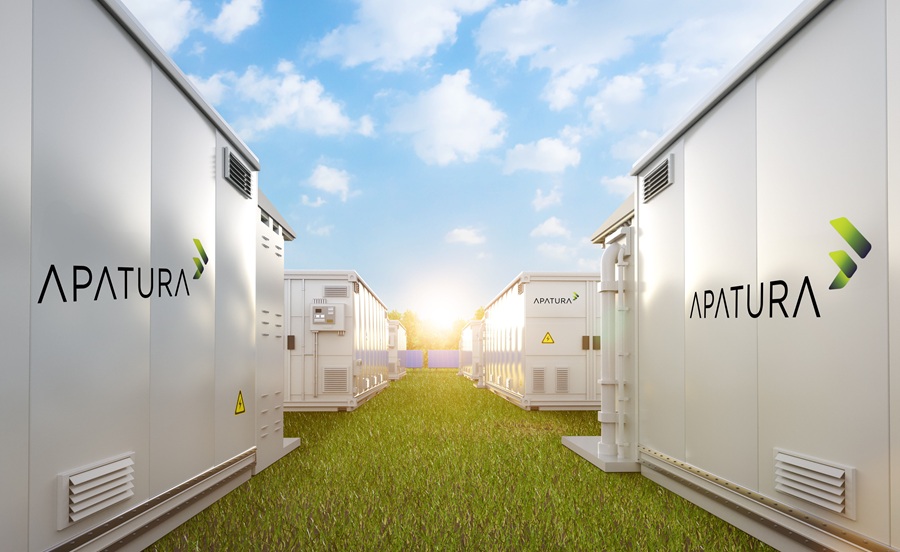Apatura secures planning consent for Paisley Battery Energy Storage System

Picture credit: Apatura
Renewable energy storage provider Apatura has surpassed 1GW of energy storage capacity with the approval of its Neilston Battery Energy Storage System (BESS).
The company has secured planning permission for a new 150-megawatt (MW) capacity BESS, with the site serving as another milestone in Apatura’s mission to redefine energy and infrastructure for a net zero future.
Located in Paisley, the Neilston BESS means Apatura’s BESS portfolio now exceeds 1035MW, reinforcing its role as a key player in delivering net zero energy infrastructure.
It marks an important milestone in the business’s ongoing mission to deliver sustainable energy infrastructure and solutions that fast-track the UK’s path to net zero.
The Neilston site is the sixth BESS that Apatura has received planning consent for in the last 14 months, underscoring the company’s purpose to harness nature’s power and its vision for a sustainable world powered by renewable energy.
When the scheme comes online, it will make a substantial contribution to the Scottish Government’s goal of generating 50% of Scotland’s overall energy consumption from renewable sources and to have delivered a net zero energy system by 2045.
It plays a crucial role in meeting Scotland’s net zero commitment as set out in the Climate Change Act 2008 (2050 Target Amendment) Order 2019.
Andrew Philpott, chief development officer at Apatura, said: “We welcome the Scottish Government’s decision to approve this essential energy storage project, with no objections from Renfrewshire Council. Scotland is taking a lead role in driving the UK towards its net zero future.
“The location of this latest energy storage site speaks to the advantageous position of Scotland in delivering resilient energy infrastructure and will be vital in enabling the goals and aspirations outlined by NESO, in their pathways to a Clean Power system for 2030.
“Not only does Scotland as a country take centre stage in the UK’s drive to a net zero future, so do the Scottish communities pioneering a renewable future.”
The Neilston BESS, which will comprise a battery storage facility, associated infrastructure and the planting of new native species trees to improve biodiversity, was approved by the Energy Consents Unit on 4th February 2025.
Apatura worked closely with the Energy Consents Unit and Renfrewshire Council, to achieve this success, which will bring grid resilience, create local job opportunities and a Community Benefit Fund.
Direct employment opportunities are expected during the construction, operational, and decommissioning phases and indirect job creation throughout the supply chain and related services.
A BESS is an advanced technology system designed to store electrical energy during periods of high generation and low demand, which can then be exported back into the grid network during periods of high demand.
Andrew Philpott added: “Our BESS plays a crucial role in modern energy management, especially in the context of renewable energy integration and grid stability. It is central to our goal of enhancing the renewable energy infrastructure in Scotland and follows on from a number of recent successful planning consents.
“This scheme will help deliver stable energy prices, leading to reduced bills and taking the pressure off households while at the same time increasing energy security.
“We are determined to deliver reliable, clean energy to communities across the country, and this latest planning consent does just that.”
According to the Decision Letter, the project is ‘needed to ensure a secure electricity system, with economic benefits’ and that the site ‘will be vital to help maintain the balance between supply and demand’ when it comes to energy curtailment.
As part of the letter, Scottish Ministers also stated that ‘secure and stable energy supply is a fundamental need of a prosperous economy’ and that the project ‘would provide further benefit to the economy through its contribution to underpinning energy security and flexibility’.





















